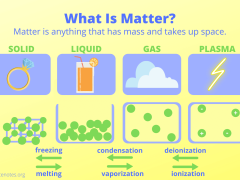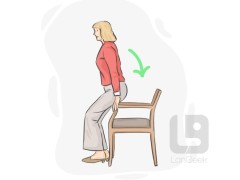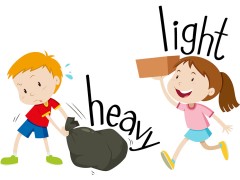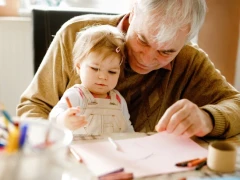matter n. 事情
children n. 孩子们(child的复数)
A: Are you ready for Christmas? 圣诞节准备好了吗?
B: Yes, I have had everything prepared, including the presents for the children. 是的,我把一切都准备好了,包括给孩子们的礼物。
tired adj. 累,疲乏
【搭】be tired of 对……感到厌倦
tired out 疲惫的
* * *
A: The music has started again. What about another dance?
B: Well, I'm a bit tired. Would you mind if I sit out this dance?
A:音乐又开始了,我们再跳一个舞好吗?
B:嗯,我有点儿累了。我不想跳这支舞了,你不介意吧?
* * *
boy [bɔi] n. 男孩
【派】boyhood 少年时代 tomboy 假小子
* * *
A: Can you play another kind of chess game?
B: Yes. When I was a little boy, I was fond of Chinese draughts and army chess.
A:你还会下别的什么棋吗?
B:会,当我还是个小男孩的时候,我很喜欢下跳棋和军棋。
* * *
thirsty [ˈθəːsti] adj. 渴
【扩】hungry 饿
【搭】be thirsty for something 渴望某物
* * *
A: I'm thirsty. Can you get me something to drink?
B: Sure. How about some mineral water?
A:我渴了,能给我拿点儿喝的吗?
B:当然可以,来点儿矿泉水怎么样?
* * *
mum [mʌm] n. 妈妈(儿语)
sit down [ˈsit-daun] 坐下
* * *
A: I don't feel well.
B: You don't look well. Please sit down for a while.
A:我觉得很难受。
B:你看上去身体不太好,坐会儿吧。
* * *
right [rait] adj. 好,可以
【搭】all right 好
* * *
A: I know a person working for that company.
B: That's just right, isn't it?
A:我认识一个在那家公司工作的人。
B:那正好,不是吗?
* * *
ice cream [ˈais-ˈkriːm] 冰淇淋
【扩】frozen sucker 冰棍
* * *
A: Would you like to order some dessert?
B: I think I'll have a dish of vanilla ice cream.
A:你想点些甜点吗?
B:我想要盘香草冰淇淋好了。
Lesson 20 Look at them!看看他们/它们!
big [biɡ] adj. 大的
【扩】large 巨大的
【搭】Big Ben 大本钟
* * *
A: Why are you taking such a big box with you?
B: Oh, that is the expensive gift for Kate.
A:你为什么带这么个大盒子?
B:噢,这是给凯特的贵重礼物。
* * *
small [smɔːl] adj. 小的
【派】small-minded 小气的
【扩】micro 微小的
【搭】small talk 闲谈
small letter 小写字母
* * *
A: This gift is too small.
B: The kindly feelings are more important.
A:这份礼物太小了。
B:重要的是那份心意。
* * *
open [ˈəupən] adj. 开着的
【派】opening 开始的 opener 开启者
【反】closed 关着
【搭】open the window 打开窗户
* * *
A: I only have personal goods.
B: What's the open bottle?
A:我只有个人的随身物品。
B:开着的那个瓶子是什么?
* * *
shut [ʃʌt] adj. 关着的
light [lait] adj. 轻的
【派】lightness 轻盈,灵活 lighting 闪电 sunlight 阳光
* * *
A: The suitcase is empty.
B: Yes, that's why it is so light.
A:这个箱子是空的。
B:是的,这就是为什么它会那么轻。
* * *
heavy [ˈhevi] adj. 重的
* * *
A: I can't move it, because it's too heavy.
B: Why not ask John for help?
A:我挪不动它,因为它太沉了。
B:为什么不找约翰帮帮忙呢?
* * *
long [lɔŋ] adj. 长的
【派】longing 渴望
【反】short 短的
【搭】long distance 远距离,远程
* * *
A: I guess I'm all set to go.
B: I know you must be excited to go home after such a long business trip.
A:我想我做好出发的准备了。
B:出差这么长时间,终于要回家了,我想你一定很高兴。
* * *
shoe [ʃuː] n. 鞋子
【扩】boot 靴子
【搭】a pair of shoes 一双鞋子
leather shoes 皮鞋
* * *
A: I want to try on a pair of shoes in the display window.
B: I see. What' s your size, sir?
A:我想试一下橱窗里的那双鞋子。
B:好的,请问您穿什么尺码的,先生?
* * *
grandfather [ˈɡrændˌfɑːðə] n. 祖父,外祖父
grandmother [ˈɡræn(d)ˌmʌðə] n. 祖母,外祖母
noun [抽象名词]事情,问题;事态,情况;困境,麻烦(the matter);物质;材料,物品,东西;书面材料,印刷品;(身体感染部位排出的)脓,黄水;命题内容;(表示数量或时间之少)大约,左右;(法庭审问或证明的)事项,案件 - It was clear that she wanted to discuss some private matter.
verb [vi. 不及物动词]要紧,有关系;(伤口)化脓,流脓 - A lot of the food goes on the floor but that doesn't matter.
noun [专属名词]孩子们(child 的复数) - How are the children?
noun [专属名词]儿童,小孩;子女;深受(某时期思想)影响的人;孩子气的人,幼稚的人;缺乏经验的人 - When I was a child I lived in a country village.
noun [专属名词]小孩,年轻人;小山羊;小山羊皮革 - They've got three kids.
verb [vi. 不及物动词]戏弄,开玩笑;欺骗,哄骗;(山羊)分娩 - If you are kidding, you are saying something that is not really true, as a joke.
adjective [原级]较年幼的;小山羊皮制的 - Buck up, kid! It's not the end of the game.
adjective [原级]疲倦的,累的;枯燥乏味的,陈腐的;厌烦的;破旧的 - Michael is tired and he has to rest after his long trip.
verb [vt. 及物动词](使)感到累,(使)感到疲劳;厌倦,使厌倦(tire 的过去式和过去分词形式) - She looked tired and dispirited.
be/get tired of sth./doing sth. 讨厌做某事
noun [专属名词]男孩;儿子;男青年,小伙子;男性朋友们,一群男伙伴(the boys);一群从事同一职业的男子(boys);(从事某一职业的)男子;小家伙(用于称呼雄性的狗或马);伙计(尤用于亲切谈论某人时);(尤指在战场上作战的)士兵,战友;指称某地等的人 - He was still just a boy.
interjection [赞美]尤用于表示羡慕或兴奋)好家伙,好样的 - Oh boy! what resourceful children I have.
adjective [原级]渴的,口渴的;渴望的,渴求的;(植物或土地)缺水的,干旱的;(引擎、植物或庄稼)耗油的,需水量大的;<非正式>(活动、天气或时段)使人口渴的 - Drink whenever you feel thirsty during exercise.
be thirsty for = be hungry for 渴望得到(如饥似渴)
- I am thirsty for the book.
noun [专属名词](非正式)妈妈;(非正式)(栽培的)菊花;啤酒 - Mum, I need a number two.
adjective [原级]沉默的;守密的 - You just keep mum about it.
verb [vi. 不及物动词]坐下:指一个人将身体放在椅子、沙发等物体上,以便休息或进行某种活动。 - Let's sit down and then you can say what's up.
adjective [原级]符合道德的,正当的;正确的,真实的;(人、物)合适的,般配的;(意见,判断)对的;右边的,右侧的;(状态或情况)健康的,正常的;<英,非正式> 十足的,真正的(用于强调某人或某物多么糟糕);正面的,外面的;时尚的,上流社会的;(人或政党)支持保守观点的,右翼的 - If you do something in the right way or in the right place, you do it as or where it should be done or was planned to be done.
verb [vt. 及物动词]纠正,矫正;补救,扭转;把(尤指小船)扶正,使直立 - If you right a wrong, you do something to make up for a mistake or something bad that you did in the past.
noun [抽象名词]正当,公正;正当的要求,权利;版权,发行权(rights);右边,右方(the right);右拐,右转弯;右边的路(或入口);(足球等运动)右外场;部队的右翼;右翼组织,右派政党(the right/the Right);右翼人士的立场,右翼立场(the right);右手拳 - Your rights are what you are morally or legally entitled to do or to have. (
adverb [方式副词](地方、位置或时间)正好,就在;直接地,径直地;一直地,完全地;<非正式>立即,毫不耽搁;正确地,确切地;<非正式>顺利,正常;在右面,向右边;(政治上)右倾地;<美>用右手地;彻底地,十足地 - Right is also an adverb.
interjection [怀疑]好的,对(用于表示明白或同意某人的话);好(用于引起注意);对吗(用于确认自己说的话是否正确);(表示不相信或不同意)是吗,好哇;对不对,懂吗(用于确认对方是否在听并明白你说的话) - You can use right to check whether what you have just said is correct.
right 做副词时强调后边的形容词、副词、介词短语,不强调动词,可用 just 来替换Right here. 就在这儿
- “Right here waiting for you” 《在此等候》
- I found my lost watch right in the graden. 我就在花园里找到了我丢失的手表
- Education is a right, not a privilege. 教育是一种权利,而不是特权。
noun [专属名词]冰淇淋:一种由牛奶、奶油、糖和水果或其他风味成分制成的冷冻甜点。 - Who wants an ice cream?
noun [具体名词]冰;冰块;冰冻甜食,刨冰;溜冰场;<美,非正式>钻石,珠宝;(态度,表情)冰冷;<英>一份冰淇淋 - Glaciers are moving rivers of ice.
verb [vi. 不及物动词]在(糕饼上)加糖霜;冷却,冰镇;<非正式>确保(胜利等);<美,非正式>杀死;结冰;长射(冰球)过全场越过对方球门线 - If you ice a cake, you cover it with icing.
adjective [原级]冰的 - If you break the ice at a party or meeting, or in a new situation, you say or do something to make people feel relaxed and comfortable.
noun [具体名词]奶油,乳脂;霜,膏;奶油色,淡黄色;含奶油食品;乳皮 - Gently apply the cream to the affected areas.
adjective [原级]奶油色的,淡黄色的,米黄色的 - The fruit was drowned in cream.
verb [vt. 及物动词]把…搅成奶油状;<美,非正式>轻易彻底打败;狠撞;加奶油;捈乳霜 - The sauce is mostly cream.
adjective [原级](尺寸、数量、规模或年龄)大的;重大的,严重的;有影响力的;糟糕的;有雄心的;受欢迎的;热衷于…的;程度深的,效果好的;大方的,大度的;生僻的,晦涩的;大写的 - Australia's a big country.
adverb [程度副词]大大,给人印象深地;夸口地;大量地 - The crowd included a big contingent from Cleveland.
adjective [原级]小型的;(数量)少的;小规模的;无关紧要的,不重要的;幼小的,年幼的;(字母)小写的;(嗓音)微弱的,轻柔的;一般的,非极端的;出丑的,羞愧的 - She is small for her age.
noun [抽象名词]<英,非正式>小件衣服(尤指内衣)(smalls);后腰(the small of the/sb.'s back);<西印度>小费,小额礼金(smalls);小件物品;矮小的人 - Place your hands on the small of your back and breathe in.
adjective [原级]开放的,营业的;开着的,敞开的;(身体部位)张开的;未封的;未系好的,未扣上的;露天的;开阔的,未围上的;无顶的,无遮盖的;开放式的;可通行的,畅通的;伸开的,展开的;坦率的;不保密的,公开的;会受到…的,会被…的;人人可以参加的,对公众开放的 - Without warning, Bardo smacked his fist into his open hand.
verb [vt. 及物动词]开,打开;开封,开启;(使)(眼睛)睁开;张开(嘴巴);翻开;展开;开放(被封的道路、边界等);(使)开始营业,(使)开门 ;(使)开张,(使)开办;为(大楼等)举行揭幕典礼;(股市)开盘,开市;着手;上映,开幕 - If you open something such as a bottle, box, parcel, or envelope, you move, remove, or cut part of it so you can take out what is inside.
noun [抽象名词]户外,野外(the open) ;公开状态,众所周知(the open);公开赛(Open);电流意外断路 - He was there, though, for the official opening.
verb [vt. 及物动词]关闭,合上;把…关在;<英>(使)停止运作,(使)停止营业;禁止通行,封闭 - Just make sure you shut the gate.
adjective [原级]关闭的,关上的;<英>打烊的,停止营业的 - She was silent for a moment, lips tight shut, eyes distant.
noun [抽象名词]关闭 - I don't have to tell you how important it is for you to keep your mouth shut about all this.
verb [vi. 不及物动词]使)关闭;合上,合拢;(使)暂时性关闭,关门;(永久)停业,停止活动;(使)结束,(使)停止;结清(银行账目,房屋互助协会账目);关闭(计算机上的文件、文档或程序);(股票等)收盘;拉近(距离),缩小(差距) - If you are cold, close the window.
adjective [原级]接近的,靠近的;酷似的,几乎相等的;接近的,快要…的;(数量、数字、水平等)接近的;(通常指危险或不愉快的情况几乎发生)差一点儿,险些;近亲的(如父母、子女、兄弟姐妹等);亲近的,亲密的 - Her lips were close to his head and her breath tickled his ear.
adverb [程度副词](空间上)靠近地,(时间上)接近地 - Her lips were close to his head and her breath tickled his ear.
noun [抽象名词]结束,末尾;大教堂所属的周围场地及建筑物;一端不通的街道,死胡同,死巷道;<英>英国某些传统公学的操场;<苏格兰>(街道和公用楼梯或后院间的)通路,入口 - I asked whether her closeness to her mother ever posed any problems.
close /kləʊs/ adj. 亲密的,近的 (形容词读间由z变为了s)
close friend 亲密的朋友
- Our home is close to the school.(静态)
- get close to... 变近了(动态)
- the/your/Jeremy' s closest friends. (最高级)
close /kləʊz/ v. 关闭
- Close the door.
noun [抽象名词]光,光线;光源(如电灯);日光,阳光;交通信号灯;车灯;(可手持的)灯,手电筒;装饰灯;打火机,点火器 - A light is something such as an electric lamp which produces light.
adjective [原级]浅色的,淡色的;采光好的;轻的,不重的;分量不足的;小巧的;少量的,程度低的;不严厉的;少量的,不多的;单薄的 - If a room or building is light, it has a lot of natural light in it, for example, because it has large windows.
verb [vi. 不及物动词]照亮,照耀;(使)燃烧,点燃;用光指引;点烟 - If a place or object is lit by something, it has light shining on it.
adjective [原级]重的,沉的;大量的,严重的;大而结实的,不精致的;重型的,大型的;繁忙的;辛苦的,费力的;用力的,重重的;厚实的;难消化的;馥郁的;(心情)沉重的,忧伤的;(通常因疲倦而)眼皮沉重的;(呼吸)粗重的,深沉的;很难的 - These scissors are awfully heavy.
noun [抽象名词]保镖,打手;(电影或戏剧中的)坏蛋,反派角色;<非正式> 重量级人物,重要事物 - ...a sensation of warmth and heaviness in the muscles. …
adverb [程度副词]浓浓地,沉重地;明显地悬浮于,明显积郁着;使不安,使担忧 - I sat down heavily on the ground beside the road.
adjective [原级]长的;长久的,长期的;漫长的;长篇的;长音的;出界的;(面部表情)不高兴的,愁苦的;记得牢的,记得久的;(可能性,机会)小的,渺茫的;远期(获利)的;(酒与凉饮料)混合的,大量的;(运动中的球)长传的,远距离的 - A long event or period of time lasts for a great amount of time or takes a great amount of time.
adverb [程度副词]长久地,长期地;很久(以前或以后);整个(时间段);(球扔得)远;整个 (时间段) - You use long to ask or talk about amounts of time.
verb [vt. 及物动词]渴望 - If you long for something, you want it very much.
noun [抽象名词]长时间,长时期;长音;远期证券;长期资本 - "Did you live there?"—"Not for long." “
noun [具体名词]鞋;马蹄铁;刹车蹄片;(尤指照相机上的)插口;(尤指雪橇滑板的)金属箍;柱脚,桩靴;(巴卡拉纸牌或其他纸牌戏的)发牌盒;他人的处境(shoes) - Low-heeled comfortable shoes are best.
verb [vt. 及物动词]给(马)钉蹄铁;穿鞋(或靴)(be shod);用金属片包覆;为(轮子)装轮胎 - Blacksmiths spent most of their time repairing tools and shoeing horses.
noun [专属名词]祖父;始祖 - His grandfather was a professor.
noun [专属名词](外)祖母,奶奶,外婆;女祖先 - Her grandmother mumbled in her sleep.
adjective [原级]壮丽的,堂皇的;宏伟的,宏大的;傲慢的,高高在上的;令人愉快的;<非正式>出色的,极好的;总括的;(常用于大型建筑物的名称前)大的;(对上层社会的人的称呼)大;(罪行)严重的;壮丽的,富丽堂皇的 - This grand building in the centre of town used to be the hub of the capital's social life.
noun [集合/集体]<非正式>一千美元,一千英镑;大钢琴,三角钢琴 - They're paying you ten grand now for those adaptations of old plays.
























